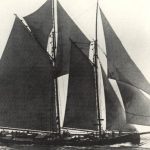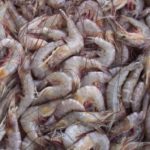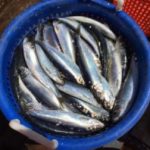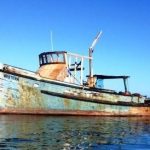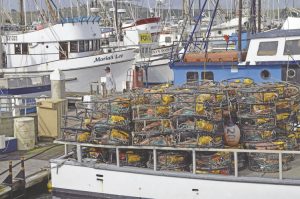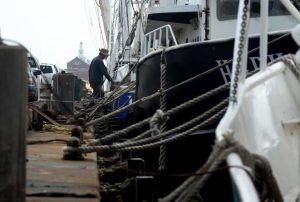Daily Archives: October 5, 2020
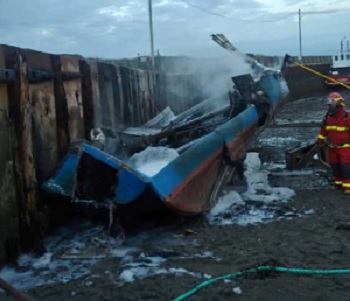
Mi’kmaw fishing vessel destroyed in suspicious fire at N.S. wharf
A suspicious fire at a southwestern Nova Scotia wharf has destroyed a boat belonging to a Mi’kmaw fisherman, casting doubt on his ability to join the upcoming commercial lobster season. Robert Syliboy woke up to a call from a friend early Monday, asking if he had a boat tied up at the Comeauville wharf in Digby County. When Syliboy replied that he did, the friend told him the vessel might be in flames. Photos soon confirmed the 12-metre boat was indeed Syliboy’s. >click to read< 18:53
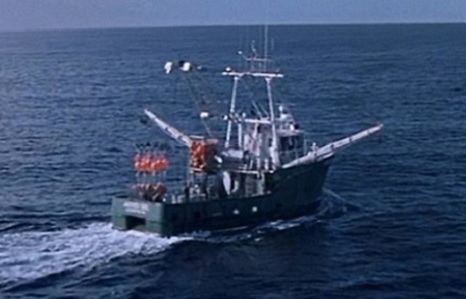
Sam Parisi: Remembering the F/V Andrea Gail, and the loved ones left behind
On October 28,10991, we lost six fishermen during the Perfect Storm aboard the F/V Andrea Gail. Captain Billy Tyne, David Sullivan, and Robert Shatford of Gloucester, Dale Murphy and Michael Moran, both of Bradenton Beach, Florida, and Clifford Pierre of New York City. My heart goes out to those families, and loved ones, may they not be forgotten. I can still remember the boat and the owner Bob Brown, also called “Suicide” Brown. He was the first lobsterman to fish off the Canyons over a hundred miles from land with his forty five foot lobster boat. >click to read< 17:24
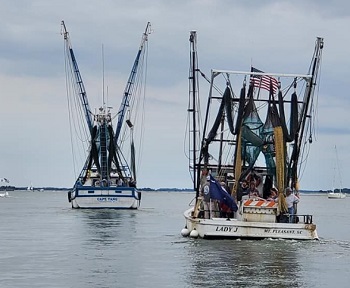
Honoring Captain Wayne Magwood
The Town of Mount Pleasant’s Special Events staff worked with the Magwood family to organize an event to honor the life of Wayne Magwood on Thursday, Oct. 1. Nearly 200 people attended the Celebration of Life ceremony for Magwood at the Mount Pleasant Waterfront Park from 6-7:30 p.m. On Saturday, Oct. 3 the Mount Pleasant shrimp fleet, followed by personal and charter boats, left Shem Creek in a parade in memory of Magwood. A gallery of 52 images is featured, >click to read< 15:47

“Wind is the culprit,” – NOAA study shows wind influence in GOA Pollock abundance
As Bob Dylan famously said “you don’t need a weatherman to know which way the wind blows.” The study conclusively shows for the first time that year-to-year variation in the geographic distribution of juvenile Pollock in the Gulf is driven by wind direction, which may keep juvenile Pollock in favorable habitat, or push them into currents and on to less favorable conditions. “Wind is the culprit,” according to AFSC biologist Matt Wilson. “The consequence is that when a large proportion of the juvenile population is transported to the southwest many of those fish are likely lost from the Gulf of Alaska.” >click to read< 11:17
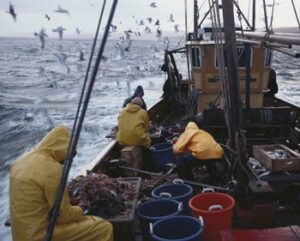
Will Britain lose another fishing war?
On average, a fish in the North Sea crosses five territorial waters frontiers every day. They don’t have passports or face quarantine. Britain made a fool of itself during the three cod wars it fought with Iceland between 1956 and 1976. British fishermen decided these were “traditional” waters and the Royal Navy was sent in to try and intimidate the Icelandic fishing boats. Other than geo-thermal energy, banking and airlines, the main Icelandic product is cod. They depended on hauling cod of out the northern waters close to Arctic Circle — we looked absurd trying to stop them. Does a new fish war with France, the Netherlands, and Spain now loom? The problem arises partly from the 1982 UN Law of the Sea convention which extended territorial waters out to 200 km. >click to read< 10:09
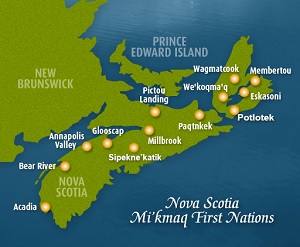
Lobster Fishery at a crossroads
According to the book Truth and Conviction: Donald Marshall Jr. and the Mi’kmaq Quest for Justice, when Marshall was asked to produce his fishing licence he replied, “I don’t need a licence. I have the 1752 Treaty.” Using the lifetime pension he received as compensation from the wrongful conviction, Marshall decided to fight for his ancestral Treaty rights to hunt and fish, and eventually, after an expensive and lengthy court battle, in 1999 the Supreme Court of Canada ruled in his favour. Marshall was acquitted on all the fishing charges, and the landmark ruling affirmed that the 1760 and 1761 Peace and Friendship Treaties with the British and Section 35 of the 1982 Constitution Act gave the Mi’kmaq, Maliseet, and Peskotomuhkati people, a total of 34 First Nations in the Maritime provinces and the Gaspé region of Quebec, the right to hunt, fish and gather in pursuit of a “moderate livelihood” from the resources of the land and waters. A subsequent Supreme Court clarification, known as Marshall II, stated that conservation-based regulations would still apply. >click to read< 08:59


































